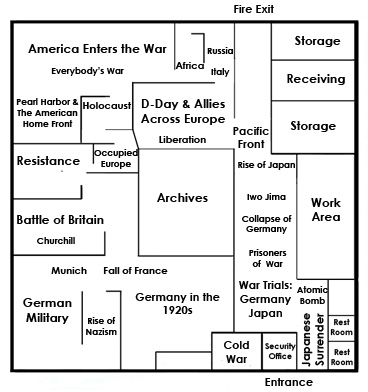 |
The Nuremberg War Trials are exceptionally well-documented, with many messages written by the Nazi war criminals to their captors; their original prisoner of war forms filled out by them; and many other letters and manuscripts concerning events during the war. The Museum also has the detention reports and photos of many of the criminals, such as this one of Herman Goering. |
|
| |
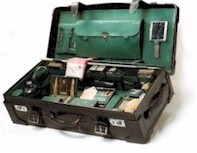 |
Herman Goering's elaborate custom suitcase bearing his coat of arms, which he took with him when he surrendered as a prisoner of war. The interior is indicative of the opulent lifestyle of the head of the Luftwaffe. It is complete with his writing folder, brushes, mirror, various bottles and boxes, and a group of cigars. |
|
| |
 |
 |
Security passes to the Nuremberg Trials. |
|
| |
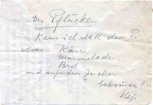 |
Rudolf Hess: "Instead of an egg, can I have a little cheese, marmalade, bread, and in addition to that, some sugar?" |
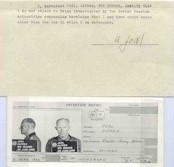 |
General Alfred Jodl. |
|
| |
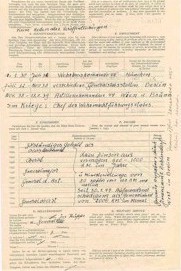 |
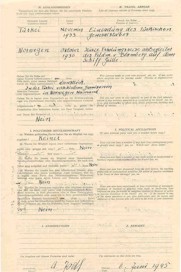 |
Jodl's questionnaire as a Prisoner of War. |
 |
Field Marshal Albert Kesselring. |
|
| |
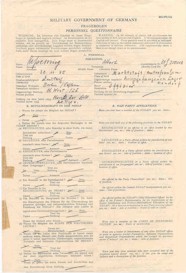 |
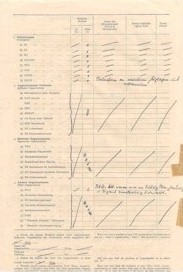 |
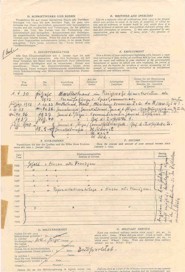 |
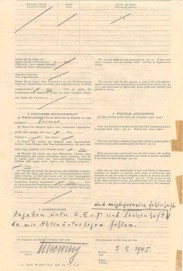 |
Kesselring's initial Prisoner of War questionnaire, filled out by him. |
|
| |
 |
Field Marshal Wilhelm Keitel |
 |
Minister for Foreign Affairs Joachim von Ribbentrop |
|
| |
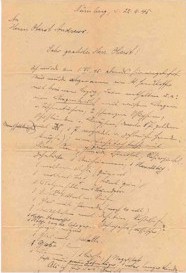 |
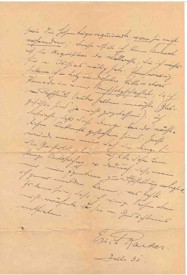 |
Admiral Erich Raeder, Nov. 22, 1945, detailing his complaints about his treatment. |
|
| |
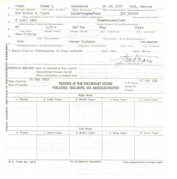 |
Ambassador Franz van Papen's Prisoner of War Preliminary record. |
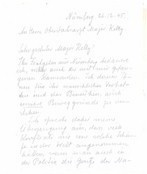 |
Alfred Rosenberg, Nuremberg, Dec. 26, 1945. A lengthy defense of his actions and his anti-Semitism: "The ideas which have inspired me in the course of 25 years of battle were thoughts meant to serve the German people, but which always kept in mind all of Europe, all of white mankind...." |
|
| |
 |
Artur Seyss-Inquart, Austrian Nazi and Reich Commissar for the Netherlands, autograph document, Sept. 12, 1945: "By order of the Interrogator Chief I have prepared a list of events from July '34-March '38. This was to be finished by 9.9. I ask to take this to the Interrogator in person." |
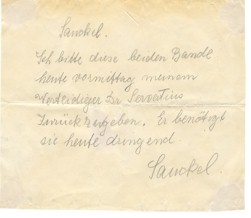 |
Fritz Sauckel, chief of Nazi slave labor recruitment, autograph document. "I'm asking that these two volumes be returned to my lawyer, Dr. Servatius, this morning. He needs them urgently today." |
|
| |
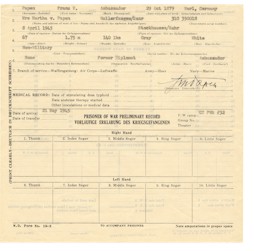 |
German politician Franz von Papen's POW preliminary record. |
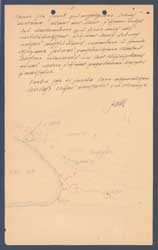 |
Alfred Jodl, lengthy autograph manuscript detailing his disagreements with Hitler concerning the war in Russia, written October 10, 1945. |
|
| |
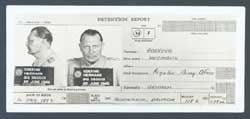 |
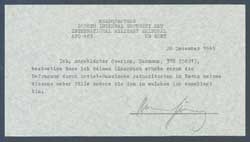 |
Hermann Goering |
|
| |
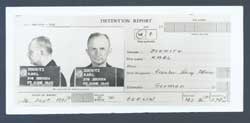 |
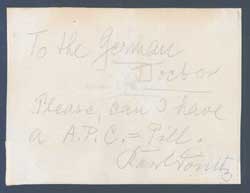 |
Karl Doenitz |
|
| |
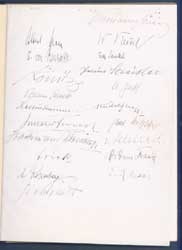 |
Page of a book about the Nuremburg War Trials, signed by all of the principal Nazi defendants. |
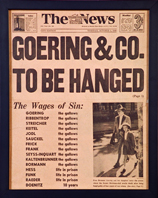 |
|
| |
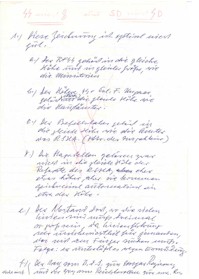 |
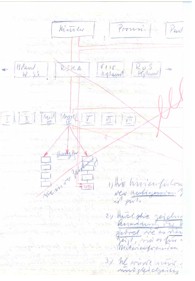 |
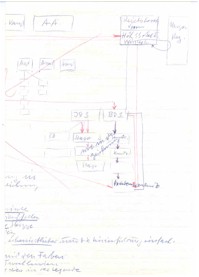 |
Adolf Eichmann, autograph manuscript, written as part of his trial in Tel Aviv, 1961. |
|
| |
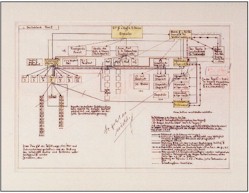 |
Adolf Eichmann's organizational chart of the SS, revised and corrected by Eichmann during his trial in Tel Aviv, 1961. |
|


